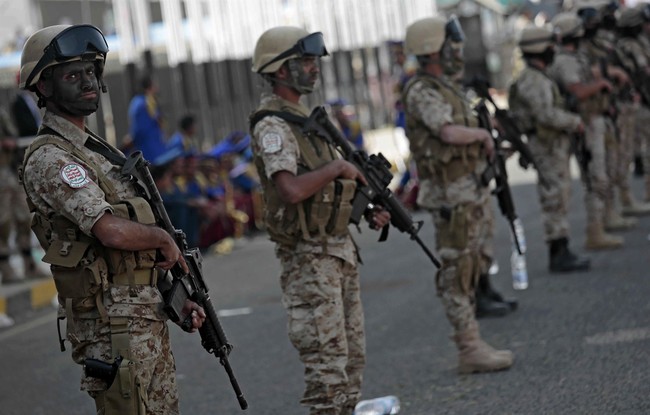Humanitarian Pause for Polio Vaccination in Gaza
In response to a polio outbreak, Israel has agreed to a temporary halt in fighting within Gaza to facilitate an urgent polio vaccination campaign.
Published August 30, 2024 - 00:08am

Image recovered from washingtonexaminer.com
In a significant development aiming to address a severe health crisis, Israel has agreed to suspend military operations in Gaza for allocated periods to allow health workers to administer polio vaccines. This intervention comes after the detection of a polio case in a 10-month-old infant, Abdel-Rahman Abu El-Jedian, in Gaza earlier this month, the first such case in the region in 25 years.
Rik Peeperkorn, the head of the World Health Organization (WHO) offices in the West Bank and Gaza, announced that more than 640,000 children would be vaccinated through this initiative, conducted in multiple phases. He emphasized the urgency of the situation, stating, I think this is a way forward. Not doing anything would be really bad. We have to stop this transmission in Gaza and avoid the transmission outside. The vaccination campaign is slated to begin on the first of September, with a three-day truce in both the northern and southern regions of Gaza.
Israeli Prime Minister Benjamin Netanyahu's office clarified that the vaccination effort should not be seen as a ceasefire but a humanitarian necessity. For three days, from 6 a.m. to 3 p.m., military actions will be halted to ensure that health workers can perform their duties safely. The decision to permit this temporary suspension was influenced by mounting international and local pressures to address the ongoing humanitarian crisis in Gaza.
The ongoing conflict, initiated by the October 7 terrorist attacks by Hamas on Israel, has severely impacted civilian life in Gaza. Health services have been disrupted, and regular vaccination routines suspended, exacerbating public health vulnerabilities. Abdel-Rahman's condition has galvanized efforts to expedite vaccine delivery and minimize further outbreaks. His mother, Nevine Abu El-Jedian, recounted her distress, Abdel-Rahman was an energetic baby. Suddenly, he stopped crawling, moving, standing, and sitting. The Abu El-Jedian family, now living in a refugee camp under dire sanitary conditions, typifies the urgent need for healthcare interventions.
The humanitarian pause aims to tackle not just the polio threat but also address broader health and sanitation issues plaguing Gaza. The UN has planned to administer vaccinations to children under ten, targeting a 95% coverage rate. UNICEF's spokesman, Ammar Ammar, stressed the necessity of a truce to ensure the safety of health workers and accessibility to children in conflict zones. Over 1.2 million vaccine doses have already arrived in Gaza, and an additional 400,000 doses are expected.
Josep Borrell, the European Union's High Representative for Foreign Affairs, called for an immediate three-day ceasefire to facilitate vaccination efforts amid the rapid spread of polio, which poses a severe threat given the current conditions in Gaza. He stated, Quick spread of polio threatens children in Gaza, who are already weakened by displacement and malnutrition. I call for an immediate ceasefire for three days to allow WHO and UNICEF to conduct the vaccination. Borrell's plea underscores the precarious situation where children risk severe and permanent health consequences if the outbreak is not contained swiftly.
In the midst of this health crisis, the broader implications of the conflict, such as the water and sanitation crisis, contribute to the spread of diseases. Ahmed al-Rabii, an engineer with Gaza's coastal municipalities' water division, highlighted the exacerbation of the polio crisis due to untreated wastewater and the lack of potable water following the intensification of hostilities. This situation has resulted in an environment conducive to diseases spread via contaminated water and poor sanitation.
Organizations like the United Nations and UNICEF have called for a concerted effort to address the health risks in Gaza. In a press briefing, Peeperkorn warned of the disastrous consequences if the vaccination drive is not successfully implemented. He stated, If this is not carried out, it could have a disastrous effect, not just for the children of Gaza but also for neighboring countries and across regional borders. The humanitarian pause represents a critical opportunity to mitigate the impact of the crisis, safeguard public health, and illustrate the potential for collaborative efforts even amidst conflict.
As children wait in refugee camps and make-shift settlements, the urgency of the campaign is palpable. Nevine Abu El-Jedian expressed her hope for her son's recovery, contemplating, I hope he gets back to being like his siblings, able to sit and move. Her sentiments reflect the wider community's hope for a cessation of conflict and a return to normalcy, emphasizing the pressing need for humanitarian intervention and support.







